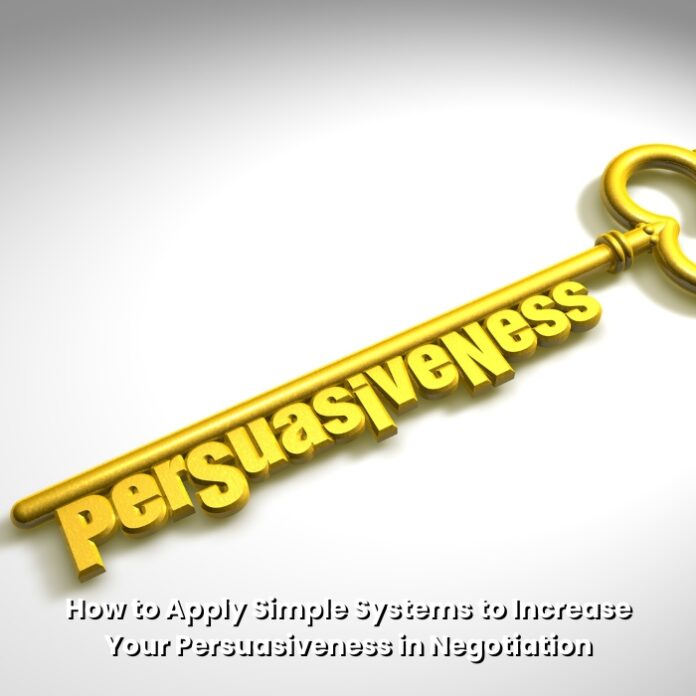Last week we talked about avoiding the pitfall of attachment in your negotiations. A recent coaching call had prompted the subject. But there was more to the story. I thought this week we’d extend the lessons from that seemingly simple exchange to increase your influence and persuasiveness in negotiation. Because success in bargaining ultimately depends on your ability to influence and persuade.
After my caller had determined whether she still wanted the deal, we jumped into a few of the elements of my negotiating systems to see how she could best navigate her next steps. If you recall, the parties had reached a tentative agreement in principle when the issue of value was raised. It was a trigger and caused the other party to back away from the deal.
It was time to go deeper in my No F.E.A.R Negotiating model. As we discussed last week, first I wanted to explore that often-ignored important question: “Does the deal still make sense for you?”. It’s critical to avoid getting so attached to a deal that you continue to bargain after it’s no longer advantageous for you. This consideration is the ‘A’ of the No F.E.A.R system – no attachment.
Now let’s turn back to the ‘F’ – fear. Fear sometimes drives us in our negotiations, often unwittingly. I asked my friend to consider what fears may have kicked in for her and for the other party when the issue of value came up. Fear of rejection, fear of failure, fear of losing, fear of missing out, fear of the unknown … even fear of success are the usual suspects. Recognizing these fears – in yourself and in the other party – will go a long way to informing how you ought to show up to maximize your chance of success. Recognizing your own fears will allow you to dissolve them or use them to fuel you instead of derail you. Knowing the other party’s fears can be a powerful tool in a negotiation. You can use that knowledge to diffuse the fear and build trust or, where appropriate, use their fear to get them to a better place for both of you. Considering the fears of the other party also helps to build empathy, which will affect how you show up and help build trust.
And let’s not ignore the all-important ‘E’ – ego. You lose control of the negotiation if you let ego drive you as you’ll lose control of your ability to assess information accurately and with perspective. You’ll likely fail to recognize opportunities or alternatives that could deliver better outcomes. It was clear in this case that the issue of value triggered ego on both sides of the table. Ego shows up in many ways: need to win, need to look good, inability to admit you don’t know, talking too much, and wanting to be liked, to name a few. Recognizing when your ego has kicked in allows you to check it and regain control.
In this case, questioning my friend’s value had kicked in her self-esteem issues and with it her need to look good. Acknowledging this helped her get perspective on how she had contributed to things going sideways in the negotiation. It also allowed her to see that wanting to be liked had impaired her judgment when the other party became offended (and to explore whether that offence was genuine or a manipulation). Also, considering the impact of ego on the other party allowed her to get intentional about how to show up in renewing the talks. She was able to make a conscious, controlled choice to shelf her own ego and cater to the ego of her counterpart to get talks back on track.
That control took care of the ‘R’ – reactivity. It allowed her to avoid becoming reactive again herself, and minimized the chance of the negotiating counterpart becoming reactive. It allowed for a more productive discussion to ensue.
Try applying this simple No F.E.A.R system next time you negotiate. Ideally, you’ll want to build it into your pre-negotiation prep work to maximize your opportunity for success. But as with this case, even if you haven’t done that and your bargaining goes south, you can always take a step back, regroup, and bring this system to bear to get your negotiation back on track to get what you want.





